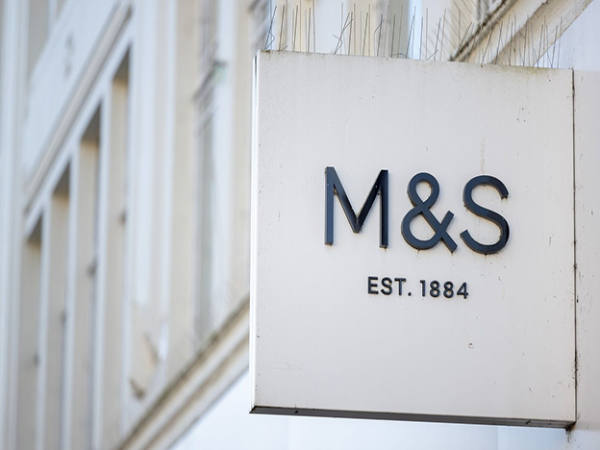Many thousands of people approaching retirement will have seen their nest-egg pulverised in the last few weeks as global stock markets have fallen. The closer you are to needing those savings, the more concerning the recent market carnage will be.
Key questions about your pension and the coronavirus crisis
- Should I take money from my pension?
- Does the crash impact the tax I pay on my pension?
- What is the impact of coronavirus on annuities?
The coronavirus crisis has prompted countries all over the world to place huge restrictions on the movement of people and business to try and curb the spread of the disease. Inevitably, this has led to large stock market declines and you are likely to have seen the value of your pension and any savings you have invested decline.
From peaks in mid February, leading market indices in the US, Europe and the UK have all seen falls of over 30 per cent in value. The markets are also very skittish, responding to daily news, with leading indices swinging as much as 10 per cent on some days.
The impact on your nest egg is undoubtedly concerning, but is important to remember that any losses you can see in your pension or savings are only paper losses - and you will only experience actual losses if you sell those holding for less than you bought them for.
To help soothe your concerns, we have attempted to answer your pressing questions about managing your pension below.
Should I take money from my pension now?
Most pension investors should avoid taking money out of their pension where they can, particularly in areas that have suffered heavy losses. Also, if you decided to crystallise losses by taking money out of your pension, the benefits of any tax relief you are due will be subdued as they are based on a lower equity value.
If the value of your pension was previously over the lifetime allowance of £1,055,000 but has fallen substantially, and you are over the age of 55, you might want to consider taking money as a lump sum now to avoid punitive charges when the value of your pot rises again.
If the value of all of your pension benefits, across all schemes, exceeds the lifetime allowance, any excess attracts a tax charge of 25 per cent if it is withdrawn as an income or 55 per cent if it is withdrawn as a cash lump sum.
What is the impact of market falls on my 25 per cent tax free cash lump sum?
You are still entitled to 25 per cent tax free lump sum but a fall in the value of your pension will make this less attractive. This is because as you would be withdrawing less tax free from your pension in absolute terms.
Should I consider buying an annuity for guaranteed income?
Annuity rates are currently near all-time lows so, while it depends on your individual circumstances, this may not be a better option if you are in good health - particularly for those who have only recently reached pension retirement age. Annuity rates change frequently, but looking at annuity rates from 19 March, for a 55 year old buying a single life level annuity, the best rate currently is only £3,612 a year for a £100,000 pension pot.
If you’re 65 and looking for an inflation linked annuity, you’ll only get £2,977 a year. For many people, accepting the uncertainty of the equity markets and staying invested via drawdown, at least until their 70s and perhaps until the current turmoil is over, could make more sense.
Source: Quotes generated on 19 March 2020 using Hargreaves Lansdown's online annuity quote tool, which compares the rates available from the UK's leading annuity providers. All quotes are based on an average postcode and paid monthly in advance. The joint life quotes assume the spouse is three years younger than the person buying the annuity.
*Smoker annuity based on a 65 year old who has smoked 10 cigarettes a day for the last 20 years and drinks 15 units of alcohol a week.
If I defer buying an annuity, when will rates improve? Will they ever?
Don’t hold your breath waiting for annuity rates to rise, we don’t know what will happen yet. However, it is likely that if and when interest rates increase - annuity rates will also increase. Tom McPhail, head of policy at Hargreaves Lansdown, says he expects annuity rates to continue to drip down as falling gilt yields have not been baked into annuity rates yet.
What has happened to annuity rates this year? Have they fallen?
Yes, annuity rates have fallen recently as interest rates have been cut and economic forecasts have weakened. On 11 March the Bank cut the base rate from 0.75 per cent to 0.25 per cent - and cut it further on 23 March to 0.1 per cent.
For example, at the start of the year the best annual annuity rate for a 60-year-old based on a £100,000 single annuity level with a five year guarantee built in was £4,248. This had fallen to £4,059 as of 19 March.
As you get older the difference is more pronounced. The annual rate for a 75-year-old investing under the same terms was £7,134 at the start of the year and has dropped to £6,735 (as at 19 March).
Figures above are calculated using Hargreaves Lansdown’s online annuity quote tool.
Don’t let coronavirus ruin your retirement (requires standard subscription)
One of the worst impacts the coronavirus could have on your long-term financial future is if it were to scare you off completely from investing in riskier assets such as shares, says James Norrington. The swings and falls markets are experiencing now are horrifying, but it is possible to choose a balanced asset allocation to alleviate some of the worst losses in bad times and still see your nest egg outpace inflation – a great outcome that is unlikely if you spend your whole life hoarding cash.
Managing your SIPP
- Should I change the asset allocation in my Sipp?
- Should I move my Sipp into more defensive assets?
- Should I sell my riskiest assets?
- Should I be buying while markets are cheap?
If you have a diversified portfolio, it is likely that the equity holdings in your Sipp have dropped substantially in value over recent weeks. Defensive assets such as government bonds and gold will have held up better, depending on exactly when you bought in.
Given the stomach-wrenching drops in stock markets, it is probably tempting to overhaul your asset allocations, sell down equity exposure and try to cut your losses. But this should be avoided: sales in a falling market will only crystallise your losses, eating into the value of your retirement savings. The difficulty of timing market moves also means that anyone selling out of equities runs the risk of missing any eventual recovery.
Provided the original asset allocation was already aligned with your financial goals, it instead makes sense to rebalance your portfolio following a big move in markets. In practice this means taking profits on the asset classes or subsectors that have performed well off in the sell-off, such as government bonds, and deploying this cash into beaten-up areas like equities. This should bring your asset allocations back to what they were before the recent volatility.
Rebalancing is extremely important, because it realigns your Sipp with its original goals and prepares it to benefit from the equity market recovery, whenever it arrives.
There are some exceptions to the rule that your allocations should go unchanged. If in the past you had limited your Sipp’s equity exposure because of concerns about high valuations, for example, you may see the asset class as more attractive in the wake of the sell-off and want to up the level of risk in your portfolio. But do not take such decisions lightly: the impact of the coronavirus lockdown on markets and economies will be substantial and could be felt for years. Always pay attention to the fundamental attractions of a potential investment rather than just the price. And do not forget to consider what any asset allocation changes will mean for your financial goals.
Investors who are finding income sources such as dividends drying up and cannot rely on a cash reserve to tide them over may be forced to sell assets to an extent that may skew their allocations from where they were originally. In such a case, it is usually better to sell assets that have performed well amid the recent volatility, such as defensive bonds, to avoid realising a loss. Once equity markets recover, you may be able to sell some of this exposure, buy back into defensive assets and return to your original asset allocation.
The coronavirus outbreak and its effect on financial markets is a reminder of how important it is to prepare for times of acute stress. One of the most effective ways to establish long-term financial security is to ensure that you have the best possible retirement savings provision in place. This in-depth guide can help you build a robust personal pension.
How drip feeding money can help investors through the crisis
Putting more into the stock market while the country is on the brink of national health crisis and the economy is on lockdown may, understandably, feel like the last thing you want to do. But investors need to hold their nerve - we don’t know how long it will take for western countries to get Covid-19 under control, or how long it will take for economies to recover - but a strategy of drip feeding money in can help investors reap the rewards of a market upturn when it eventually comes.
Workplace pensions
- If my company goes bust, will I lose my pension as well as my job?
- What happens if the company whcih pays me a pension goes bust?
If you are in a defined contribution pension, your company going bust makes no difference to your pension as it is administered separately by trustees.
If you are in a final salary pension and your company goes bust and the pension scheme is in deficit, then you may face the prospect of a small reduction in your retirement income.
If you are already drawing on your pension your income will not change, but if you are before pensionable age then your final salary will fall into the pension protection fund and you may see a 10 per cent cut in your retirement income.











